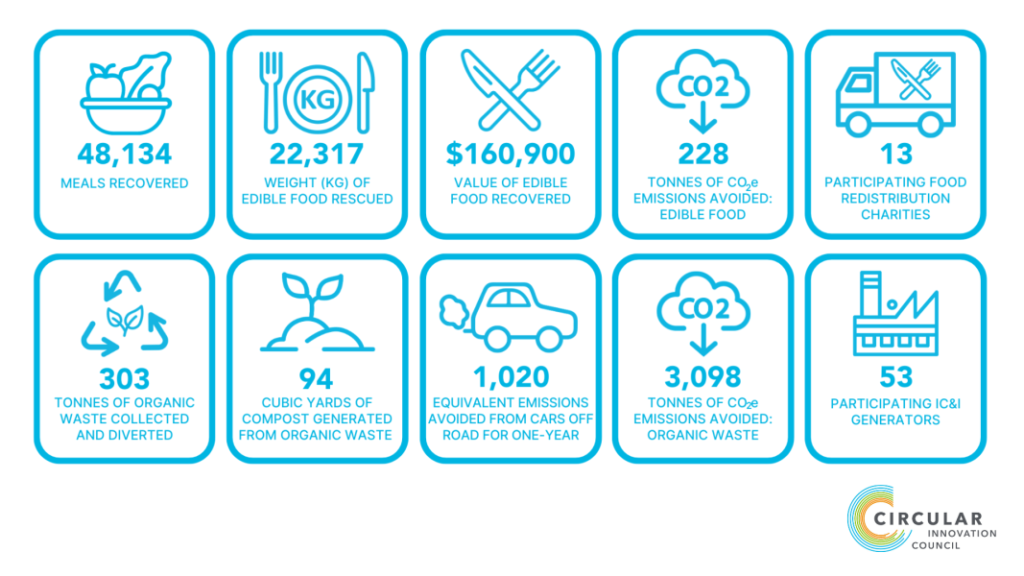AltRoot, in collaboration with the Circular Innovation Council, is thrilled to extend its acclaimed initiative for rescuing food and diverting organic waste in partnership with the Town of Westlock and Strathcona County, Alberta. The primary objective of this initiative is to provide cost-effective food waste collection services for businesses and institutions, the largest generators of food waste in Canada. Subsidized collections are scheduled to commence in January 2024, and businesses and institutions are encouraged to express their interest by visiting our website for additional details.
Expanding on the achievements of its initial project in Guelph-Wellington County, Ontario, the pilot enhances the efficiency and affordability of organic waste collection, presenting a circular solution for food waste with significant social, environmental, and economic benefits.
Initiated by the Circular Innovation Council, the pilot mirrors the residential food waste collection model by consolidating collections among neighbouring businesses and institutions. This collaborative approach allows them to reduce collection costs through a shared financial model collectively. Businesses are assisted in redirecting surplus edible food to community service agencies, while organic waste is gathered and diverted away from landfills to be composted. The resulting nutrient-rich compost is then applied to local regenerative mixed farms to enhance soil health, sequester carbon, and decrease greenhouse gas (GHG) emissions, creating a truly circular food solution.
The Circular Innovation Council, in collaboration with the municipalities of Strathcona County and the Town of Westlock, is spearheading the pilot. Local organizations such as AltRoot Composting, Leftovers Foundation, EcoSafe Zero Waste, and Green for Life (GFL) Environmental will serve as implementation partners. TELUS is providing support for the pilot to test innovative sensor technology and develop a platform for real-time capture of participant organic waste data, aiming to drive reductions in food waste and carbon emissions. Businesses and institutions within the host communities generating food and food waste are invited to join this unique, collective, and data-driven pilot to ensure the capture of food nutrients and reduce their environmental footprint.
The expansion of the pilot to Westlock and Strathcona County is made possible, in part, through funding from the Alberta Ecotrust Foundation’s Environmental Impact Grant Program and Agriculture and Agri-Food Canada’s Food Waste Reduction Challenge. This program was selected as a finalist in their Business Models streams. Additionally, the pilot has received recognition from the Milan Urban Food Policy Pact’s biannual Global Forum as an internationally innovative food waste solution, chosen from over 250 programs submitted by 133 cities.
Food Waste in Canada: Unveiling the Numbers
• More than 50% of Canada’s annual food production is wasted, amounting to over $107 billion in losses.
• One in six Canadian households grapple with ongoing food insecurity.
• Approximately 8% of greenhouse gas emissions can be attributed to food waste.
The Impact of the Guelph-Wellington Food Waste Pilot After 18 Months:
• Successfully diverted 303 tonnes of organic waste.
• Recovered surplus edible food valued at $160,900.
• Provided over 48,000 meals to address food insecurity.
• Successfully diverted 303 tonnes of organic waste.
• Recovered surplus edible food valued at $160,900.
• Provided over 48,000 meals to address food insecurity.

